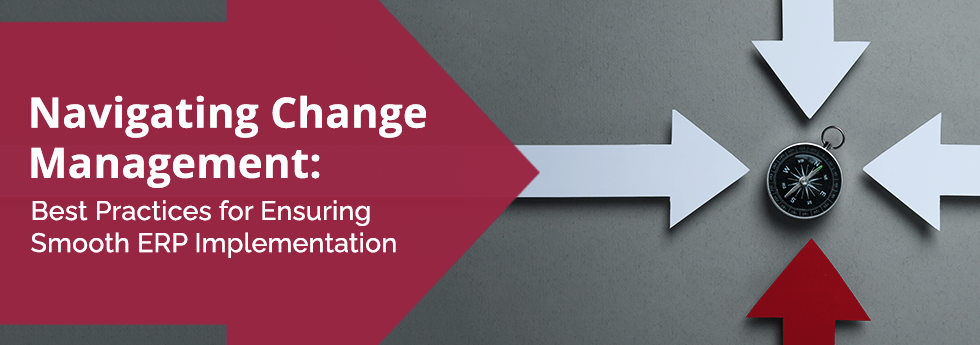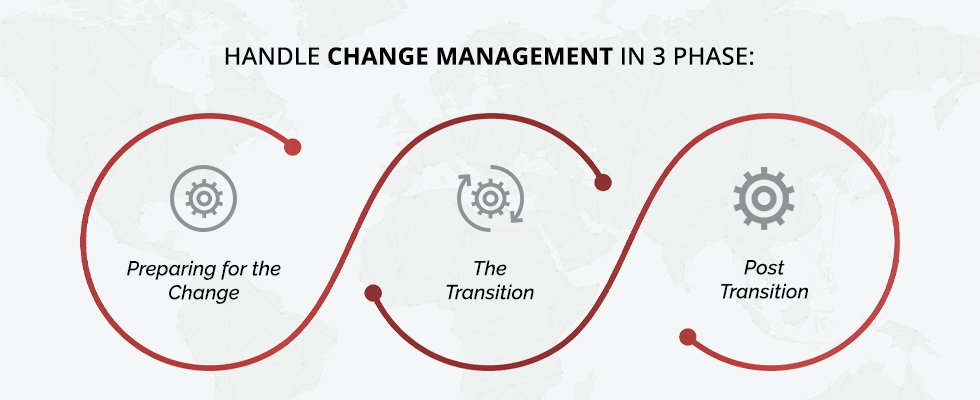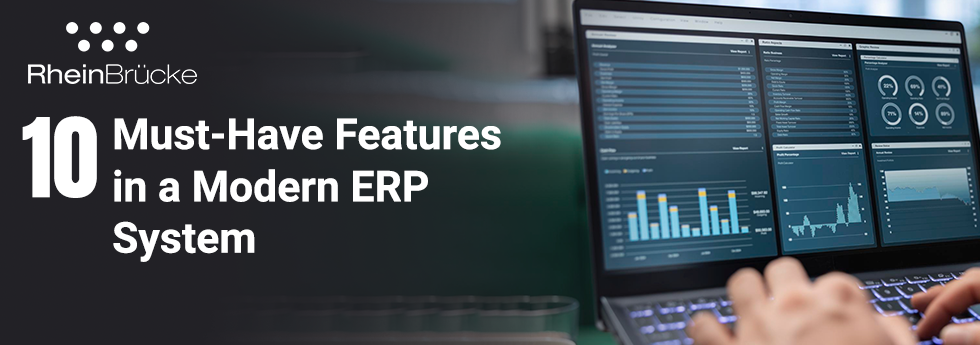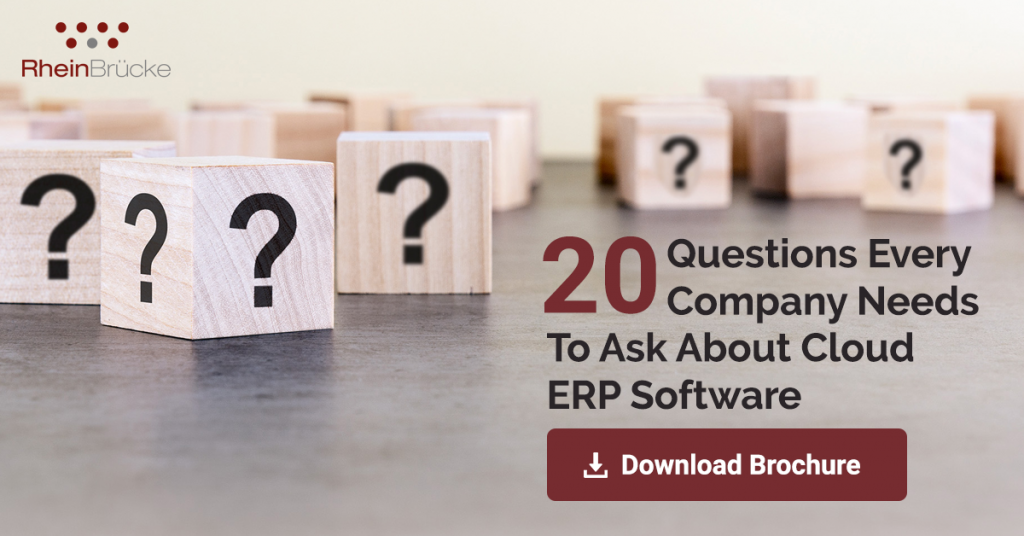
Implementing an ERP system takes an organization forward in its path towards growth and development. The transition can, however, be challenging because of stakeholder reluctance and employee reservations. Addressing employee concerns openly will make acceptance easier. The first step involves identifying an effective ERP system implementation project management partner and handling the Change Management in three phases.

Preparing for the Change
ERP system implementation project management partners such as RheinBrucke ensure a smooth transition. They start with setting up the stage for the change. Change management begins with explaining the process to stakeholders and getting them on board.
Begin with a complete needs assessment for the business by evaluating current business practices and identifying areas for digitisation and efficiency improvement. Make sure that the ERP goals are in line with your business objectives. These steps help ensure that the change is seamless, and each step of the transition holds up the company’s vision and mission.
The next step is to get the stakeholders involved in the change. Frequent consultations with department heads and leaders help develop teamwork and trust. Stakeholder ownership and participation enable effective decision-making and a smooth transition. Document the “As-Is” and “To-Be” business process and get it reviewed and approved by all key stakeholders.
Overcome employee reservations and reluctance through meaningful dialogue and open communication. Listen to their concerns and offer ongoing support through the transition. Include them in the process, understand their problems, and resolve them for effective change management.
Impactful employee education is crucial for ERP implementation success. Instead of traditional hour-long sessions, break down information into bite-sized, on-demand modules. This approach suits shorter attention spans and busy schedules, making key concepts easier to grasp. Use storytelling, video explainers, and interactive exercises to keep learning engaging and successful, ensuring smoother change management.
The Transition
A successful ERP Implementation partner breaks down the change into several phases so that the implementation can be done in stages. This minimizes disruption to business processes and supports gradual transition. It also allows for issues that may arise to be addressed and resolved as you go along, building trust and winning employees over.
A cross-functional team drawn from key departments is essential for ERP system implementation project management. A fully dedicated team can focus on managing a smooth change.
User stories from different departments help identify specific requirements and pain points. Configuring the ERP system to address these requirements enhances stakeholder acceptance and readiness to use the ERP system. Incorporate best practices from across the industry in the system, adding value to the implementation.
Ensure that project management strategies are flexible and responsive to changing demands. Incorporate business feedback and implement improvements iteratively for a smooth adoption of the ERP system.
Educate employees about ERP implementation through short but effective sessions. Microlearning modules that cater to short memory spans and busy schedules are more likely to be successful. This helps employees take in key concepts in smaller doses without feeling overwhelmed.
Collect detailed user stories from various departments to understand specific needs and pain points. This approach helps customize the ERP system to better meet the unique requirements of each department, ensuring a more effective and tailored implementation.
Use different techniques such as storytelling, video explainer content, and interactive exercises to communicate with your target audience. Connecting with the audience on an emotional plane ensures that the content is received more positively, contributing to successful change management.
Ensure transparency of process changes as well as of project phases and roadblocks with all stakeholders. This approach helps adapt to changing needs and enhances the overall effectiveness of the ERP implementation.
Post Transition
Providing continued support after the transition is equally important to ensure the success of ERP implementation. Arrange for adequate helpdesk services to address any hiccups that may arise after the transition. This helps boost user confidence and acceptance of the new system. Similarly, appreciate every small step of progress made to encourage employees. Keeping them happy and well-engaged automatically leads to milestones being achieved.
Plan for a dedicated support period immediately after go-live, including enhanced helpdesk services. This ensures issues are promptly addressed, boosting user confidence and system adoption.
Embrace the journey by celebrating small wins; acknowledge progress along the way, not just milestones. Each step forward fuels our collective success and inspires continuous improvement
The key to successful ERP system implementation thus lies in identifying the right ERP implementation partner like RheinBrucke to take care of the project management, address teething troubles, and ensure growth and development.





